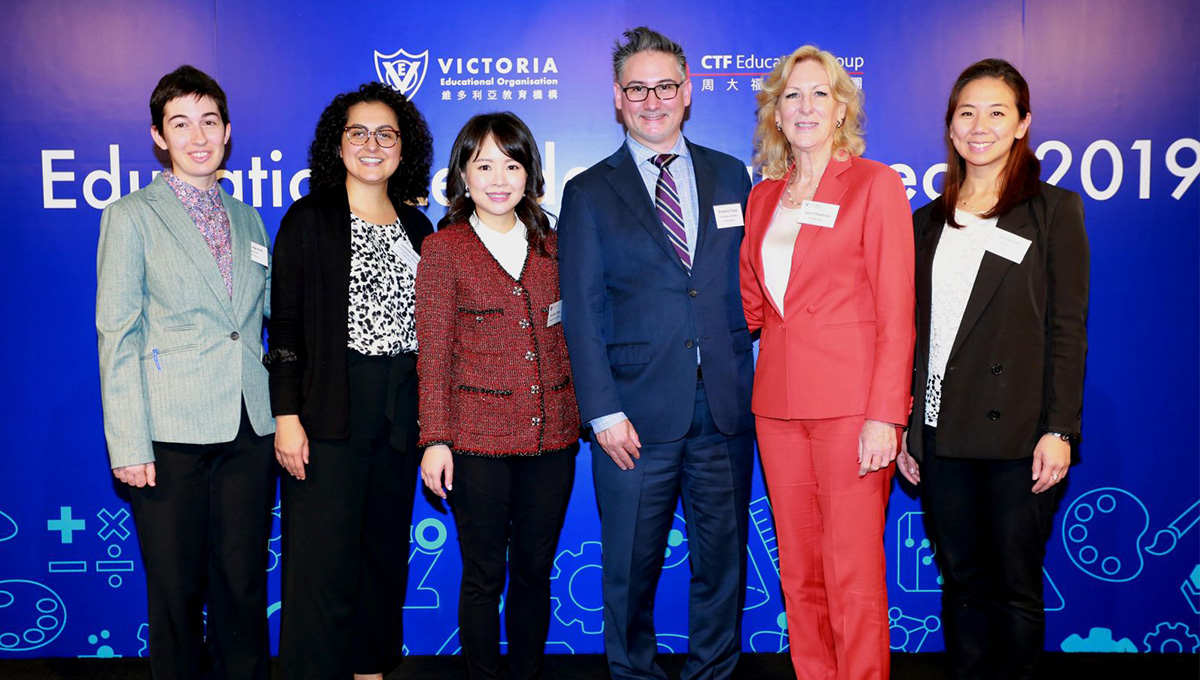CTF Education Group and Victoria Educational Organisation successfully organised the “Education Leaders Luncheon and Maker-Centered Learning Exhibition” at Renaissance Hong Kong Harbour View Hotel. The conference is a unique occasion for international and Hong Kong education leaders from various sectors, to exchange experiences and ideas about how to support young students as makers.
First in Hong Kong, VEO was proud to engage in a research initiative with Project Zero, at the Harvard Graduate School of Education (HGSE). The study, “Agency by Design: Early Childhood in the Making”, aims to investigate and understand how maker-centered learning can serve as a framework for early childhood educators as they support their students in developing a can-do spirit and in becoming empathic agents of change.
At this “Education Leaders Luncheon and Maker-Centered Learning Exhibition”, VEO and the research team from Project Zero at the Harvard Graduate School of Education (HGSE) were excited to share the research foci, and resulting achievements from the first year of the pilot research study.
The event attracted over a hundred esteemed education leaders and STEAM professionals, including principals and senior teaching staff of reputable kindergartens, local and international primary/secondary schools, department heads and professors of universities related to STEAM and education, leaders of various education organisations, media management and government officials, and so on. The attendees found the sharing and workshop very inspirational, and were impressed by the world-class research insights brought by VEO and the Project Zero research team at HGSE.
Mrs. Jennifer Cheng, Group President and Deputy Vice Chairwoman of CTF Education Group Limited (CTFEG) said “Matching the challenges of the 21st century, maker-centered learning has become an important global education trend aimed to encourage, nurture, and inspire young peoples’ creativity and empathy. Actually, even at a young age, we have seen through our kindergarten students that they are using screwdrivers to take their toys apart to see how complex the inner workings are; are reflecting on how artists felt, and in turn wanted us to feel, when creating their most famous works of art; or redesigning the Hong Kong MTR system to be more safe and efficient for all citizens. Through maker-centered learning, children develop important skills such as creativity, observation, problem solving, and collaboration which are important for their future pursuits of STEAM disciplines”.
Mrs. Jennifer Cheng continued “As a leader in education with global vision, VEO strives to keep its curriculum and teaching approach in line with leading and contemporary education research, as well as the changing needs of the community. VEO is honored to be a part of the CTFEG, founded in late 2017 to provide high quality education.
CTFEG invests in initiatives at some of its schools aimed at engaging the faculty in the cutting edge curricular ideas. For instance, CTFE Group supports the research initiative at VEO with Project Zero, at the HGSE, to understand how maker-centered learning can provide a framework for young children to develop skills and knowledge within and beyond the STEAM disciplines, an integral part of contemporary education.
We believe this meaningful project not only benefits the students of VEO and the education industry, but also contributes to the better future of the global community. We look forward to contributing valuable findings and insights in maker–centered learning and STEAM disciplines and collaborating with other education leaders again in the near future with the coming second year of the pilot study.”
Dr. Edward P. Clapp, Principal Investigator at Project Zero, HGSE said, “We have been inspired by the achievements of the VEO teachers that we have had the privilege of working with and excited by the findings that have begun to emerge from the “Agency by Design: Early Childhood in the Making” project. We believe that young people are natural makers, and with the proper pedagogical tools, educators can support their youngest students in becoming more sensitive to design — and more empowered to shape their worlds”.

